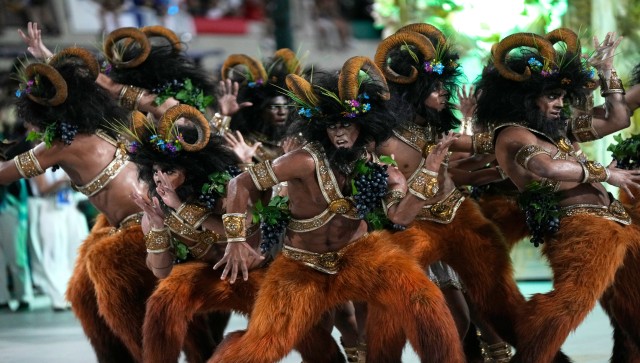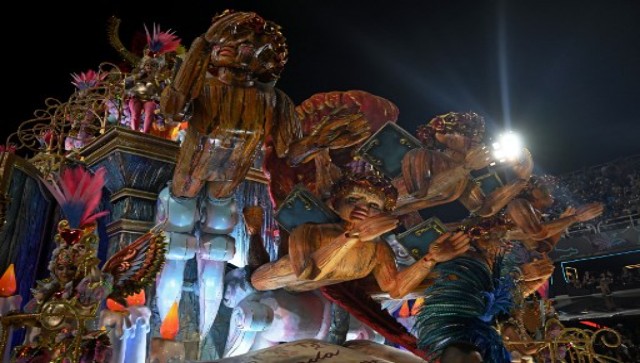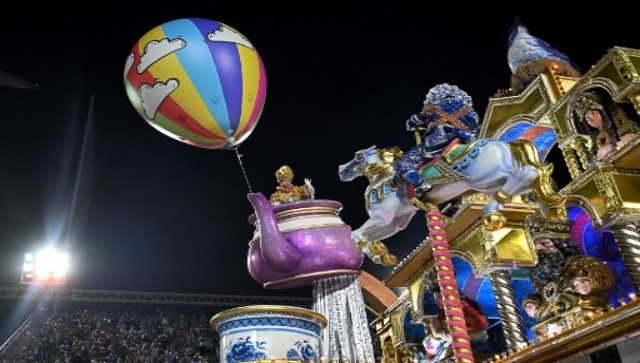Dance like Everybody’s Watching: The Rio Carnival returns and Brazilians are ‘celebrating life’
At the coveted competition, the city’s top 12 samba schools vie for the title of parade champions with dazzling floats and thundering music. Thousands of singers, drummers and dancers take centre stage donning vibrant, jewel-encrusted, feather-covered costumes
)
Shaking the ground to the beat of their drums, Rio de Janeiro’s famed carnival parades returned Sunday in a swirl of glitter, sequins and samba, the festival’s first full-on edition since COVID-19 and Brazil’s bitterly divisive elections. AP
)
The world’s biggest carnival hit peak party level as Rio’s top samba schools opened their annual parade competition in the giant avenue-turned-stadium known as the “Sambadrome.” AP
)
“Celebrating carnival after the pandemic is a feeling of freedom and happiness so big I can’t even describe it,” said 25-year-old Debora Soares, who was beaming in a sequin-studded costume atop a giant green-and-gold float as she prepared to dance in samba school Imperio Serrano’s parade. AP
)
“It also comes after a historic, watershed election, after all the darkness we went through. Carnival brings the hope that the coming years will be better,” added Soares, an event planner and model from Cidade de Deus. AP
)
The beach city cancelled the festival in 2021 because of the pandemic. It held a reduced version last year, banning the massive street parties known as “blocos” and postponing the parades by two months because of a surge of COVID-19, which has claimed nearly 700,000 lives in Brazil. AFP
)
The samba schools, the pride of Rio’s impoverished favelas, spend months making the sparkling costumes and fantastical floats that are the trademarks of the parades. AP
)
At the competition, the city’s top 12 samba schools vie for the title of parade champions with dazzling floats, thundering music, and thousands of singers, drummers and dancers in revealing, jewel-encrusted, feather-covered costumes. AP
)
The parades were often politically charged during the Jair Bolsonaro years, with a thinly veiled criticism of the far-right government over issues such as racism, religious intolerance, environmental destruction and Brazil’s disastrous management of COVID-19. This year’s parades were less political. AP
)
Many of the schools returned to their roots, with themes linked to founding figures of the samba genre and the Afro-Brazilian culture from which it emerged. AFP
)
“Carnival is contagious. It’s part of our culture, it’s in our DNA – that bohemian spirit of dancing samba, enjoying life,” said Lucas Pinheiro, 27, a civil servant sitting outside his house, two blocks from the “Sambadrome,” watching the parades on a TV set up on the sidewalk – a family tradition for more than two decades. AFP
)
Iaraci Santos, a 64-year-old nurse, has been participating in the parades since she was seven years old. She said entering the parade venue never got old, with its bright lights, booming bass drums and 70,000-strong crowds. “Every time I enter that avenue is like the first time,” she said. AFP


)
)
)
)
)
)
)
)



